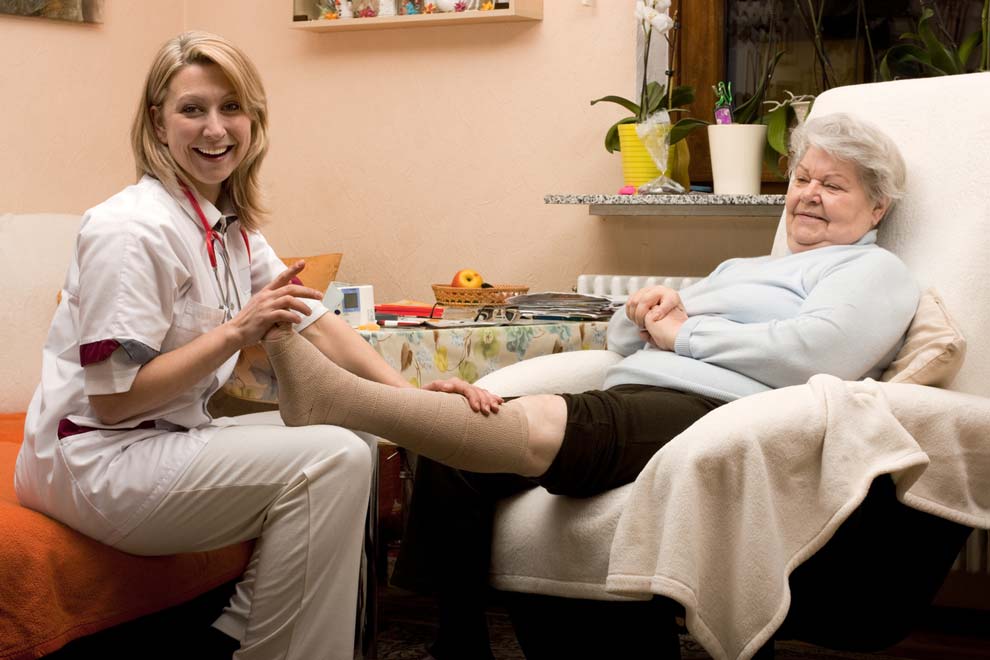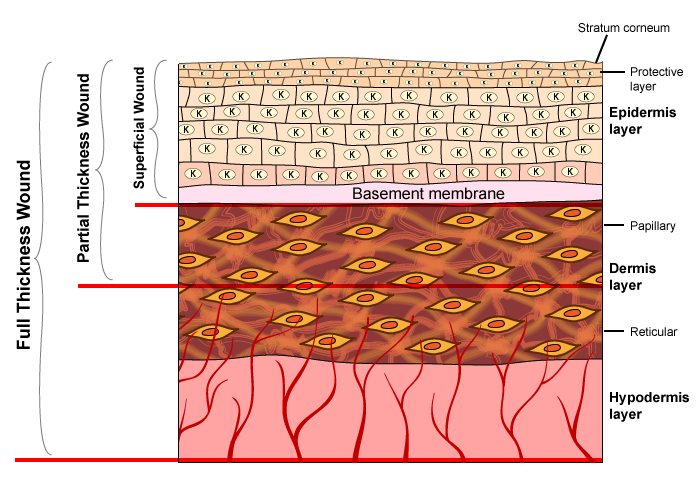Herbal Wound Care

Turmeric is used in traditional medicines to treat skin wounds. Modern clinical research shows that compounds in turmeric can help reduce healing time and may even help reduce scarring. (ix.85-87)
Lab, animal, and/or clinical studies suggest that oral and topical turmeric and turmeric compounds could help heal different types of skin wounds. These include: (ix.88-91)
- Cancer sores (ix.88)
- Caesarean section (C-section) scar healing (ix.128)
- Diabetic foot ulcers (ix.89)
- Snake bites (ix.90, 91)
Turmeric has even been made into wound dressings that were effective against E. coli and other bacteria. The turmeric dressing also healed wounds between 21-28.5% faster than plain agar films. (ix.85, 86)
How Do Wounds Heal?
The severity of a wound will affect how long it takes to heal and risk of scarring. The deeper a wound is and the more layers of skin involved determine its seriousness. (ix.92)

Severity of Wounds
In partial and full thickness wounds the body needs to regenerate more tissue to heal. Full thickness wounds can even involve repairing blood vessels and nerves. Deeper wounds are more likely to scar. (ix.92)
The Three Stages of Healing
Healing takes place in 3 phases after an injury: (ix.92)

Phases of Wound Healing
A Complex Process Involving Many Proteins and Cells
Skin and immune system cells stimulate production of a variety proteins and cells to accomplish all 3 phases. These include: (ix.92)
| Phase | Type | Examples | Key Activities |
|---|---|---|---|
|
Inflammatory & Cleansing |
Blood Cells |
|
|
|
Inflammatory & Cleansing |
Immune System Cells |
|
|
|
Inflammatory & Cleansing |
Proteins |
|
|
|
Proliferative Phase |
Epithelial Skin Cells |
|
|
|
Proliferative Phase |
Proteins |
|
|
|
Maturation Phase |
Proteins |
|
|
What Hinders Healing?
A number of external and internal factors can inhibit and slow down wound healing. Many are inflammatory, deplete antioxidants, and increase free radicals — all of which interfere with normal levels of cells and proteins needed to heal wounds. These include: (ix.17, 40, 57, 92-94)
- Infection
- Poor nutrition and lifestyle
- Lack of essential vitamins and proteins
- Poor hygiene
- Smoking
- Other health conditions:
Fun Fact stop - Poor circulation
- Medications
- Steroids and anti-inflammatories (can inhibit immune system)
The immune system is also affected by stress, which raises both cortisol and adrenaline levels. This may explain why stress can make wounds take a lot longer to heal. (ix.95)
Chronic wounds get stuck in the 1st (inflammatory and cleansing) phase of wound healing. On the other hand, excess or improperly replaced collagen in the proliferation and maturation phases can lead to scar tissue, including keloids. (ix.87, 92)
How Can Turmeric Help?
Turmeric and its compounds have multiple properties that could help wounds heal better:
| Actions | Turmeric Compounds | Importance |
|---|---|---|
|
↑ Adiponectin (ix.93) ↑ Angiogenesis (ix.17) ↑ Natural antioxidants (ix.94) ↑ Growth factors (ix.17) |
Ar-turmerone (ix.16, 61, 62) Ferulic acid (ix.94, 96) Linoleic acid (ix.62, 65) Resveratrol (ix.58, 62) Turmeric (whole extract) (ix.61) |
Helps Wounds Heal Faster in People with Metabolic Syndrome Conditions
|
|
↑ Angiogenesis (ix.97) ↑ Fibroblasts (ix.17) |
Ferulic acid (ix.96, 97) |
Rebuilds Tissue
|
|
↓ Nitric Oxide Synthetase (NOS) (ix.85) |
Alpha-linolenic acid (ix.14, 63) Caffeic acid (ix.16, 99) Ferulic acid (ix.96, 97) |
Anti-Inflammatory |
|
↓ Anxiety |
Curcumin (ix.101) |
Studies show that psychological stress slows wound healing. (ix.95) |
Turmeric and some of its compounds (such as 1,8-cineole, curcumin, eugenol, and geraniol) also have pain-relieving properties. Animal and clinical studies suggest turmeric could help reduce the pain of topical injuries and wounds. In one clinical study, for example, turmeric oil reduced pain from oral sores. (ix.14, 105, 106)
Do Any Turmeric Compounds Slow Down Wound Healing?
Although study results are conflicting, animal and clinical studies suggest that using some of turmeric's compounds by themselves may do just that. It's worth noting that the following compounds could slow down wound healing:
- Alpha-linolenic acid protects skin cells against damage from UV radiation. It also suppresses a growth factor that can promote keloids. However, topical application or oral supplements of omega-3 polyunsaturated fatty acids delayed wound closure in one clinical study. (ix.14, 60, 107, 108)
- Resveratrol has potent anti-inflammatory properties. However, it also shows anti-angiogenic activity and in animal studies with mice slowed wound healing. (ix.68, 99, 109)
Join the 1000s of People Who Are Discovering the Benefits of Turmeric.

Healthceuticals® Turmeric Curcumin Complex
100% Certified
Organic ingredients
- Organic Turmeric Extract - standardized to 95% curcuminoids.
- Organic Whole Turmeric - provides full spectrum antioxidant, anti-inflammatory turmeric benefits, including turmerones and numerous vitamins, minerals, and phytonutrients
- Organic Black Pepper Extract - standardized to 95% piperine; dramatically enhances bioavailablity.
- Organic Phospholipids - markedly improve absorption.
- Organic Ginger - works synergistically with turmeric to provide more powerful benefits.
- Absolutely FREE of potentially harmful additives and fillers such as magnesium stearate.




